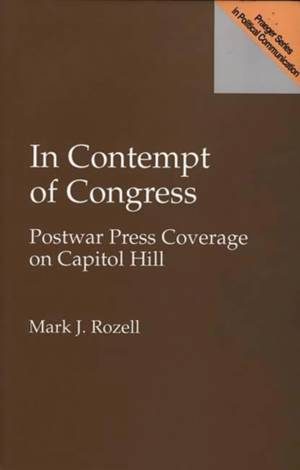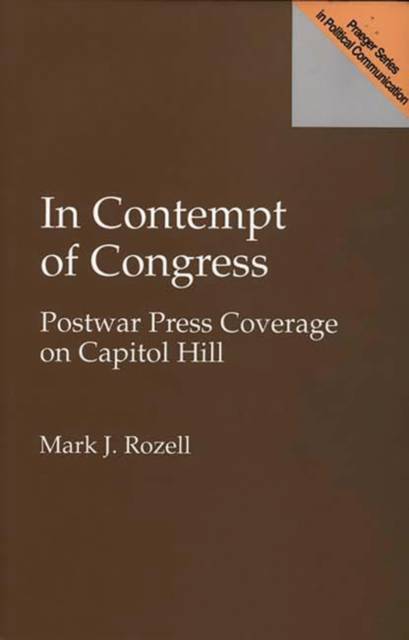
- Afhalen na 1 uur in een winkel met voorraad
- Gratis thuislevering in België vanaf € 30
- Ruim aanbod met 7 miljoen producten
- Afhalen na 1 uur in een winkel met voorraad
- Gratis thuislevering in België vanaf € 30
- Ruim aanbod met 7 miljoen producten
Zoeken
Omschrijving
Over the past decade, the public's opinion of Congress has declined--election after election--to record lows. Mark J. Rozell examines the electorate's ongoing disgust with its legislature and the reasons for it. Putting recent Congresses in historical perspective, he notes that our modern representatives are actually less corrupt than those of the past, due in large measure to increased public scrutiny and ongoing tightening of ethics and conflict of interest rules. Still, the public remains skeptical, indeed hostile, toward that most representative of our national institutions. Rozell finds that much of the blame goes to highly negative press coverage of the Congress, and government in general, and that while Congress has always been a favorite target of critics and comedians, healthy skepticism has now largely been replaced by a debilitating cynicism that undermines the foundations of representative government. A major study which will be of interest to scholars and students of American politics, government, and media.
Specificaties
Betrokkenen
- Auteur(s):
- Uitgeverij:
Inhoud
- Aantal bladzijden:
- 160
- Taal:
- Engels
- Reeks:
Eigenschappen
- Productcode (EAN):
- 9780275956905
- Verschijningsdatum:
- 22/07/1996
- Uitvoering:
- Hardcover
- Formaat:
- Genaaid
- Afmetingen:
- 163 mm x 244 mm
- Gewicht:
- 408 g

Alleen bij Standaard Boekhandel
+ 254 punten op je klantenkaart van Standaard Boekhandel
Beoordelingen
We publiceren alleen reviews die voldoen aan de voorwaarden voor reviews. Bekijk onze voorwaarden voor reviews.











